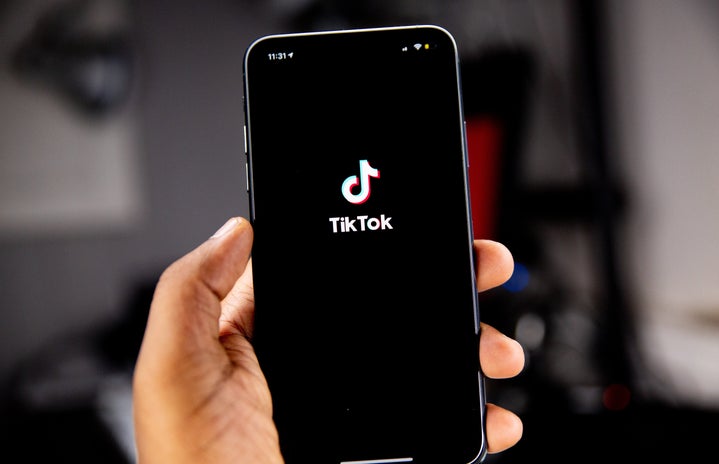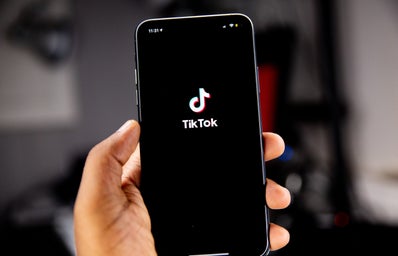The internet’s obsession with true crime is well established and widely known, however the TikTok true crime community has continued to grow since the pandemic. Its short form content has allowed for the widespread of information regarding cases from around the world, and has allowed for online ‘amateur sleuths’ to try their hand at solving crimes. However, with this level of popularity comes the question as to the ethical nature of viewing such tragic, real-life events as a form of entertainment.
True crime has drawn in crows since the dawn of time, from crowds of people gathering to watch beheadings to the media frenzy around the Jack the Ripper murders, history is laced with a gruesome fascination with the darkest parts of human history. Modern platforms and social media have allowed for this popularity to be more widespread than ever, and allows for accessibility to details of crimes that may have never been seen before. For many, their first introduction to the online true crime community may have been through Youtubers such as Eleanor Neale, who’s disclaimer that her videos are never meant to offend anyone affected and are purely for educational purposes known by many off by heart. With the growth of TikTok then came the move for many from YouTube to the shorter form of content, which allows for bitesize pieces of information to be widely accessible.
Whilst true crime has become an extremely popular form of entertainment, the negative consequences of this growing community are more evident than ever on TikTok, with its short form content style and lack of fact checking allowing for widespread misinformation as well as easy access to quite horrific content.
Recently, the case of the Idaho murders went viral. The heartbreaking case of four University of Idaho students found stabbed to death in their home on November 13th 2022 had the internet gripped, with videos regarding the case going particularly viral on TikTok. With TikTok’s new slideshow feature, users were found to be posting conspiracy theories regarding the murder itself, alongside photos of the victims taken from their social media accounts, facts regarding their backgrounds and current college life, as well as most shockingly images of the crime scene. These incredibly disturbing images were popping up on the ‘For You Pages’ (fyp) of users worldwide, many of which without content warning. This case was particularly popular online as those involved had such a strong online presence due to them being college students in the US, and so those investigating the case were able to view the online profiles of the victims themselves, and the obsession grew out of control.
As stated by Rachel Sharp for the Independent, ‘there’s no doubt that the intentions are well-meaning and that many of the individuals spending countless hours investigating the case from the comfort of their computers had a genuine desire to catch the killer’, however the knock on effect of such widespread discussion resulted in a wave of conspiracy theories and false information being spread, and ‘Moscow Police were forced to spend considerable amount of time swatting away rumours’, several of which accused innocent people through baseless claims.
‘’Hoodie guy’ who was spotted with Goncalves and Mogen at a food truck hours before their deaths and Goncalves’ former boyfriend both came in the firing line, while some of the victims’ families were targeted with death threats.’
If the immense grief of the situation wasn’t enough, the widespread conspiracy theories online forced many of the friends and families to have to make statements on social media to set the record straight, with ‘the boyfriend of one of the surviving roommates slamming a ‘sickening’ rumour that the couple – or even his own father – were involved in the murders’.
Furthermore, internet ‘sleuths’ and conspiracy theorists impact the media coverage of the crime itself, with many news reports often clouded with theories from online communities regardless of the truth behind the claims.
On the other hand, there have been cases where online true crime communities have been detrimental to the solving of the case, such as that of Gabby Petito, whose remains were found after her disappearance went viral overnight. Through discussion of Gabby’s last known whereabouts on platforms such as Twitter and TikTok, a couple who had been at the Bridger-Teton National Forest at the same time as Gabby where able to locate footage of a white van, which they then later shared with the FBI. Thanks to the video, ‘local authorities and the F.B.I found human remains that matched Ms. Petito’s profile near the van’s location in the video’.
Furthermore, 2019 Netflix documentary ‘Don’t F**k with Cats’ followed ‘two amateur detectives who used Facebook and other sites in the 2010s to try to solve a mystery’ which eventually led to the arrest of murderer Luka Magnotta. Writer and director Mark Lewis stated that ‘this idea of internet sleuthing and internet vigilantism isn’t new’.
‘From the safety of your living room, you can do amazing things in forms of detection’ he said. ‘And many, many people are.’
Overall, whether healthy or not the true crime community online will most likely always exist, and though can be helpful in a handful of cases, overall tend to hinder rather than aid solving cases, let alone detrimentally affect the mental wellbeing of those consuming such tragic content at such a rapid rate.
Sources
https://www.independent.co.uk/voices/idaho-murders-reddit-bryan-kohberger-b2260406.html
https://www.nytimes.com/2021/09/20/style/gabby-petito-case-tiktok-social-media.html


